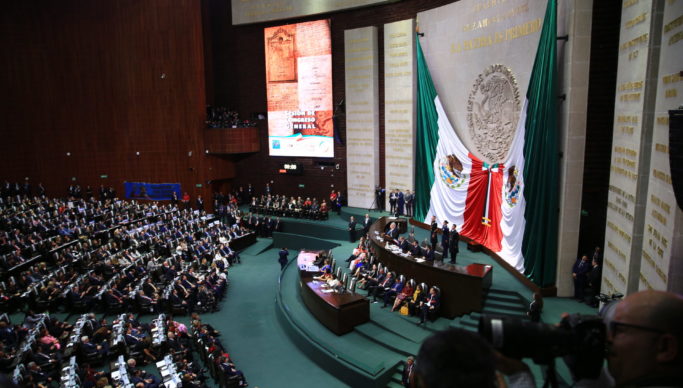
Mexican Bishops Engage in Talks with Drug Cartels in Pursuit of Peace in the Face of the Government’s Hands-Off Approach to the Problem
- By Geoffrey Peters --
- 05 Mar 2024 --
Four Roman Catholic bishops have engaged in talks with Mexican drug cartel leaders in an attempt to broker a peace deal, and President Andrés Manuel López Obrador has expressed his support for such negotiations, highlighting a trend whereby the government’s hands-off approach has forced citizens to seek their own agreements with criminal organizations.
Bishop José de Jesús González Hernández of Chilpancingo-Chilapa disclosed the meetings during a public appearance, underscoring the vacuum left by the government’s reluctance to confront the cartels directly, the Associated Press reported February 15.
In a widely publicized article titled “Catholic Bishops in Mexico Say They Negotiated For Possible Peace Accord With Drug Cartel Leaders,” the news agency stated that López Obrador acknowledged similar discussions had previously occurred in Michoacan and elsewhere in Mexico, noting the church’s role in facilitating such talks.
“Priests and pastors and members of all the churches have participated, helped in pacifying the country,” the president said the day after Bishop González Hernández’s revelation, adding: “I think it is very good.”
While López Obrador endorsed the dialogue, he emphasized that any agreements must not grant impunity or privileges to criminals.
However, the president’s stance was met with skepticism by a parish priest from Michoacan whose town has long lived under the dread of cartels. The priest, who spoke to AP on the condition of anonymity, said he viewed López Obrador’s statement as an admission of his government’s inability to ensure public safety.
In many parts of Mexico, citizens have resorted to paying protection fees to drug cartels out of fear of violence or retribution. The church has also faced threats, with several priests murdered by criminal groups. Despite these challenges, some cartel leaders have engaged in discussions with church representatives.
The most recent negotiations, focused on the ongoing turf wars in Guerrero state, ultimately failed as the cartels were unwilling to cease hostilities. The conflicts have caused transportation disruptions and numerous fatalities in recent months.
Beyond drug trafficking, cartels in Mexico extort businesses and control various aspects of daily life in their territories. López Obrador’s policy of “hugs, not bullets” has led to a de facto control by cartels over several cities, unleashing higher prices for goods because of cartel-imposed “taxes.”
Salvador Rangel, a retired bishop who led the Chilpancingo-Chilapa diocese until 2022, confirmed the talks’ failure, citing the cartels’ refusal to make concessions. He did not specify which cartels were involved, and Guerrero is known to be a battleground for multiple criminal organizations vying for control.
Rangel defended the negotiations, emphasizing the importance of seeking peace and harmony. That sentiment was echoed by González Hernández, who suggested that Pope Francis had indirectly supported the dialogue during a 2023 meeting with bishops.
Although the Vatican has not commented on González Hernández’s claim, the bishop’s position aligns with Francis’ approach, which prioritizes dialogue and peace efforts, even in challenging circumstances.



















